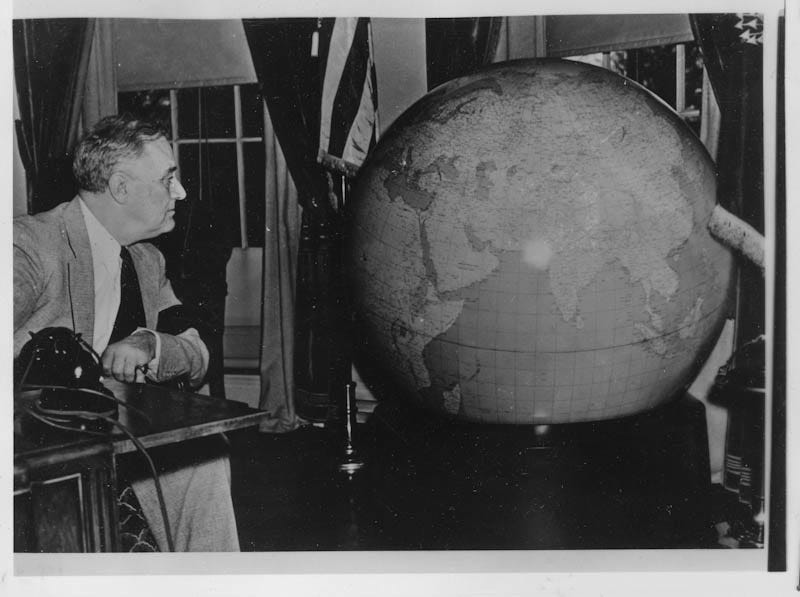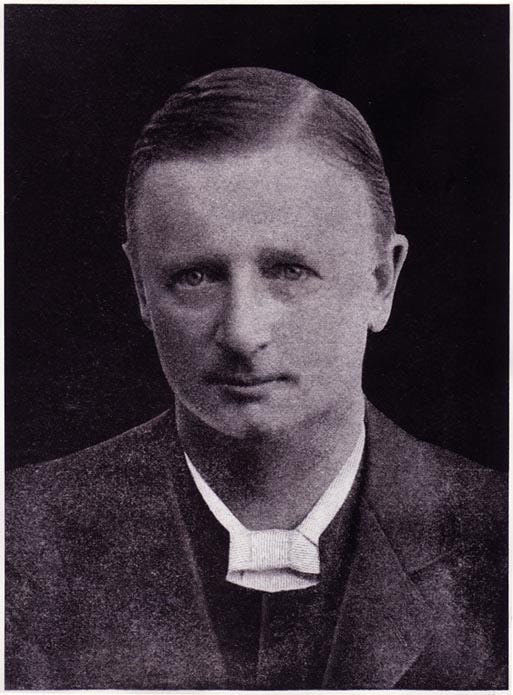World War II Was Always the Plan
Decades Before Pearl Harbor and the Rise of Hitler, Franklin Roosevelt and Admiral Mahan Prepared for War With Japan and Germany
Franklin Delano Roosevelt came of age during the Spanish and Philippine wars. When he heard in February 1898 that the Maine had been sunk in Havana Harbor, the sixteen-year-old Roosevelt’s first thought was to enlist. This may seem remarkable given that he was the son of one of the wealthiest families in America and comfortably ensconced in his second year at the Groton School for Boys, a preparatory boarding academy for the nation’s elite set amid forest and meadows in northern Massachusetts. But Roosevelt, like so many upper-class Americans of his time who believed themselves to be responsible for the people of Cuba, the Philippines, and the world, was pushed to fight by his wealth, his privileged position, and his training.
Groton’s founder and headmaster, Endicott Peabody, built the school around the teachings of Charles Kingsley, an English founder of the Christian Socialist movement and proponent of the British Empire who demanded that the well-to-do take responsibility for the less fortunate masses. This meant, of course, an assumption that the way of life of the less fortunate should be raised to the level of their benefactors. And since this was perceived as a divine calling, it also came with the belief that the sacrifice of human life was not too great in its service. Peabody “invited a steady succession of speakers” to Groton, writes Roosevelt biographer Frank Freidel, “who challenged the boys to go forth and right wrongs in a multitude of fields from heathen China to the slums of New York.”
No student at the school more fully realized Peabody’s ambition than Franklin Roosevelt. He joined Groton’s Missionary Society, which conducted religious services for the destitute, volunteered for the Boston Boys’ Club, directed the Groton Summer Camp, which was a retreat for poor boys, and aggressively engaged in formal debates on America’s leadership role in the world. Many years after graduating, Roosevelt maintained that “as long as I live, the influence of Dr. and Mrs. Peabody will mean more to me than that of any other people next to my father and mother.” Roosevelt’s favorite books while at Groton were Admiral Alfred Thayer Mahan’s The Influence of Sea Power upon History and The Interest of America in Sea Power, Present and Future, which famously argued that national greatness required control over markets and natural resources in foreign countries and a dominant navy to enforce it.
Mahan, who served as president of the Naval War College and advised the general staff of the Navy throughout his career, postulated that the United States would inevitably come into conflict with a rival naval power. “The assumption of a simple defensive in war is ruin,” he warned. “War, once declared, must be waged offensively, aggressively. The enemy must not be fended off, but smitten down.” Among Mahan’s specific recommendations in the second volume were for the United States to annex Hawaii, “because of its “favorable position for maritime and military control,” and use it as a mid-Pacific military base to counter the “military danger” from Japan. Because of Japan’s “evolution of racial characteristics radically different” from America’s, conflict between the two nations would most likely be resolved only through military conflict.
Franklin Roosevelt came to believe as a teenager that the United States was obligated to go to war in the Pacific.
Keep reading with a 7-day free trial
Subscribe to Thaddeus Russell to keep reading this post and get 7 days of free access to the full post archives.






